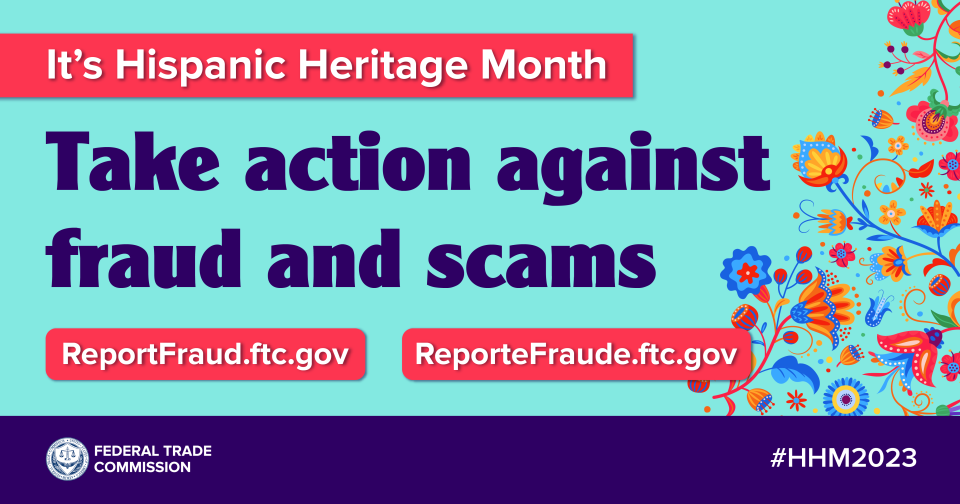Scammers target everyone. But scams and reported bad business practices can play out differently in different communities. Sometimes, scammers set out to target a particular community. Sometimes, they tell a group to pay in specific ways. (Specific ways that make it very hard to get their money back, after they discover the scam.) There are also businesses who harm communities by using tactics that trick people into use their services. So, what do scams and bad business practices look like in the Latino community?
Reports to the FTC show that majority Latino communities are more likely to file reports about credit bureaus, banks and lenders, debt collection, auto issues, and business opportunities. Those same reports show that majority Latino communities are more likely to say they paid in cash, crypto, debit card, or by bank or wire transfer — all ways with few (if any) consumer protections or ways to get your money back.
In a recent case, the FTC sued a company that promoted bogus business coaching and real estate investment schemes to Spanish-speakers. The company, Ganadores (ironically, “winners” in Spanish), drew people in with Spanish language social media ads promising big earnings selling on Amazon, or by investing in real estate — and charging them big money for supposed “coaching” programs. And that’s just one case.
Since scammers sometimes target the Latino community, let’s target a shared response to those scams and bad business practices. Hispanic Heritage Month is a great time to share resources and tools, and to take action.
- Order and share the FTC’s series of fotonovelas, graphic novels that educate through storytelling. They’re free, along with lots more at ftc.gov/ordenar.
- Subscribe and share Consumer Alerts in English or Spanish. They’ll keep you up to date on the latest scams.
- Learn and share some consumer protection basics at consumidor.gov and consumer.gov.
Spread the word at community events, gathering places, or just among friends and family. And tell people in your community that, if they spot a scam or bad business practice, tell the FTC: ReportFraud.ftc.gov (in English) or ReporteFraude.ftc.gov (in Spanish.) Every report makes a difference.


"...by using tactics that"...more specificity would be helpful. Although the targeted communities are mentioned, I could not find examples, names etc. Thank you.
In reply to "...by using tactics that"… by William
You all have no clue how bad and elaborate these scams are, there so bad and so many companies involved that some involved like the banks don't even realize there dealing with scammers and basically hand over our information to them, if we could call and speak to someone without it being a call center overseas it would help but because almost all these big businesses our phone companies, banks, Walmart, etc use those call centers which I've complained about many many times, that has gave them a perfect cover to hack our phone emails you name it and no one questions it, or when you do no one take it seriously enough, it's to the point I wonder if the government is responsible? I could tell you some crazy stuff I've dealt with and figured out but that's another reason it's happening no one wants to speak about it for fear of people thinking your crazy it's that bad, hand to God it is no lie. I've just had to learn to roll with it like it normal now, I've watched my dad get scammed out of his house, buying a car, insurance, online apps that are controlled by hackers that spy and listen to everything thing you do, algorithm yeah right.
In reply to You all have no clue how bad… by Sonya brimecombe
RIGHT??!! We don't have to suffer in silence forever thank God but man having to hold it all in because the time is not right or who you can tell is wrong , its a heavy burden. Holding your breathe waiting for justice, without the help of God would make it impossible
In reply to You all have no clue how bad… by Sonya brimecombe
Mind elaborating a bit on how they scammed the house and insurance? Dad's been facing similar issues, just trying to find figure what may actually be happening.